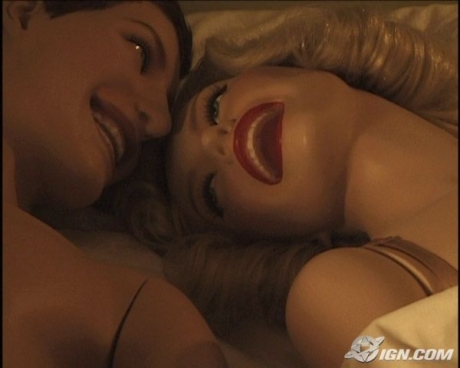Random
A List Without Numbers Is Still a List

When people say “the pleasures of the novel” what do they mean? This is a serious question. Please answer in the comments. An interested party would like to know.
The New York Times will start ranking e-book bestsellers in the new year.
Over at The Awl, Maria Bustillos writes of loving her new Kindle and fearing fascism.
There was a pedophile how to manual for sale on Amazon. The Internet went crazy again and rightly so.
Speaking of the crazy Internet, that one lady who stole that writing and didn’t know about copyright, she sort of apologized but her apology sucked.
Black Lawrence Press has announced The Big Moose, an award for an unpublished novel. I predict Jacob Appel will submit at least six manuscripts, four of which will make the shortlist.
The Guardian writes of literary magazines flourishing in the Internet age.
On the Missouri Review blog Michael Nye asks if MFA programs can teach novel writing.
The editor of The Southern Review writes about why she sometimes calls writers to accept work for her magazine. Editors currently considering my writing, please feel free to call, any time. (Thanks for the tip, Alex Cook)
Stop writing stories about incest, cancer, or death. (Alas.)
AGNI has compiled a portfolio of African fiction.
Cliff Garstang has updated his literary magazine rankings. Math seems complicated.
It’s an age old question: can famous people write? If you prick famous people, do they not bleed?

It would be easier to tell if famous people could write if they would use a pseudonym. It’s difficult to detach them from their fame if they don’t. Not only do you wonder to yourself whether it’s good, whether you think it’s good or not good because you’re thinking of the person as famous, but you also might wonder if it was published because the editor actually thought it was good, or because the person was famous, etc. Famous people could write and publish stories under a pseudonym, and then someday be like, “Oh hey, it was me all along, look famous people can write!” or whatever. There are also different kinds of famous-people writing being discussed in that post. Franco is writing differently from Snooki, right? Oh famous people. I don’t know what I’m saying.
Is this where we’re supposed to have another “words are words they cannot physically make somebody abuse a child” conversation? I am uncomfortable with the idea of amazon refusing to sell books based on content, period.
By “the pleasures of the novel”, I would mean to indicate the category of cases when the excitation of imagination for some particular mind’s following a story results in imagination-triggered, but corporal, sensation of some kind(s) of joy.
A conventional explication of the phrase, but I think Bataille or Deleuze and Guattari – or, indeed, Shakespeare – are talking, however thrillingly transgressively or opaquely, about just this conventional text-stimulated experience of “pleasure”.
“Black Lawrence Press has announced The Big Moose, an award for an unpublished novel. I predict Jacob Appel will submit at least six manuscripts, four of which will make the shortlist.”
this made me laugh out loud
Is it a case of “refusing to sell books based on content”? I can think of two competing causes for Amazon’s retraction of availability of the book.
1) The criminal – and civil-litigation – problem (for Amazon) of abetting a ‘criminal conspiracy’. If purchasers of the book (through Amazon) get arrested for committing crimes that seem connected to the book’s ‘advice’ or presentation of information, is Amazon ancillarilly (to the author and/or publisher of the book) vulnerable to criminal or civil prosecution? I don’t know, but this line of worry sounds, to me, like the kind of thing a shyster would be being paid to alert her or his corporate client to.
(This reason obtains even if the Amazon people want to make the book available on the grounds that “words cannot physically make somebody abuse a child”. It’s just fundamental ass-covering. [ha ha]
Also, Mike, I think anyone who engages in any kind of conversation is committing themselves to ‘words causing behavior’, whether they want to make such an argument or not. – by way of my participating in “another [such] conversation”.)
2. Public relations. Amazon might not care about “content, period” period, as a matter of corporate irresponsibility, but might rather be figuring – I think: accurately – that selling this guy’s book (or books; I think there’s an earlier, similarly controversial, publication that Amazon had available as of yesterday) would be more $$ trouble than it’d be worth; far too many more outraged customers would find other ways to get their books online than would buy these pedophilia, um, discussions, would be this line of reasoning.
By “the pleasures of the novel”, I would mean to indicate the category of cases when the excitation of imagination for some particular mind’s following a story results in imagination-triggered, but corporal, sensation of some kind(s) of joy.
A conventional explication of the phrase, but I think Bataille or Deleuze and Guattari – or, indeed, Shakespeare – are talking, however thrillingly transgressively or opaquely, about just this conventional text-stimulated experience of “pleasure”.
[…] where even Peter Turchi weighed in with a comment. Here’s another response. HTMLGiant noticed. And today I read this fantastic essay on Slate, “MFA vs. NYC: America now has two distinct […]
[…] HTMLGiant noticed. […]